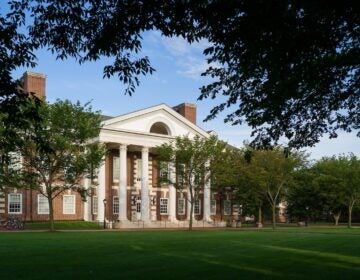As students return to dorms after COVID spike, Philly colleges implement rapid testing
Some Philly-area college students returned to in-person class last week amid public health experts’ concerns about spreading COVID on campus.
Listen 5:02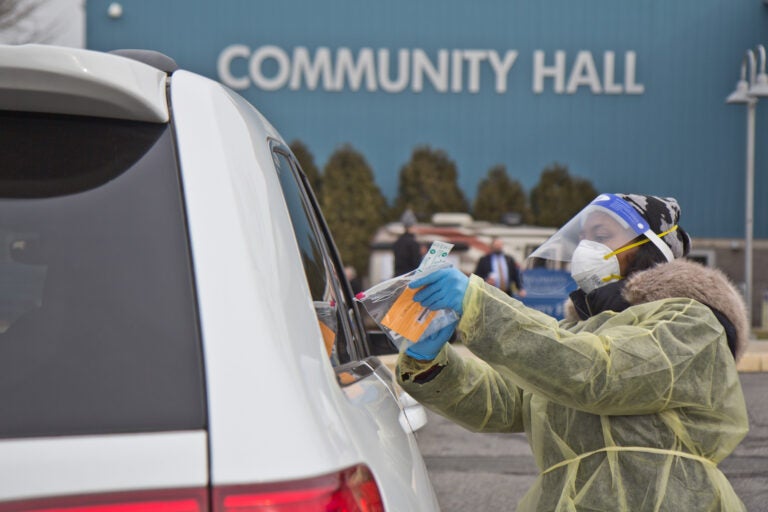
A nursing grad student administers COVID-19 tests at Neuman University. (Kimberly Paynter/WHYY)
Many college students across the country are now back in their dorms after winter break on the heels of a December where the Philadelphia region faced its deadliest days of the COVID-19 outbreak.
In order to mitigate the spread of the virus, many area colleges required students to test negative for COVID-19 before they could move back into their residence halls and attend in-person classes. At Neumann University in Delaware County, 475 students opted to return to campus this semester amid public health concerns.
To ensure every returning student was able to receive a test, Neumann provided free, on-site, rapid testing to them as they returned to campus.
Freshman biology major Hannah Asaka waited in line for a test on move-in day earlier this month.
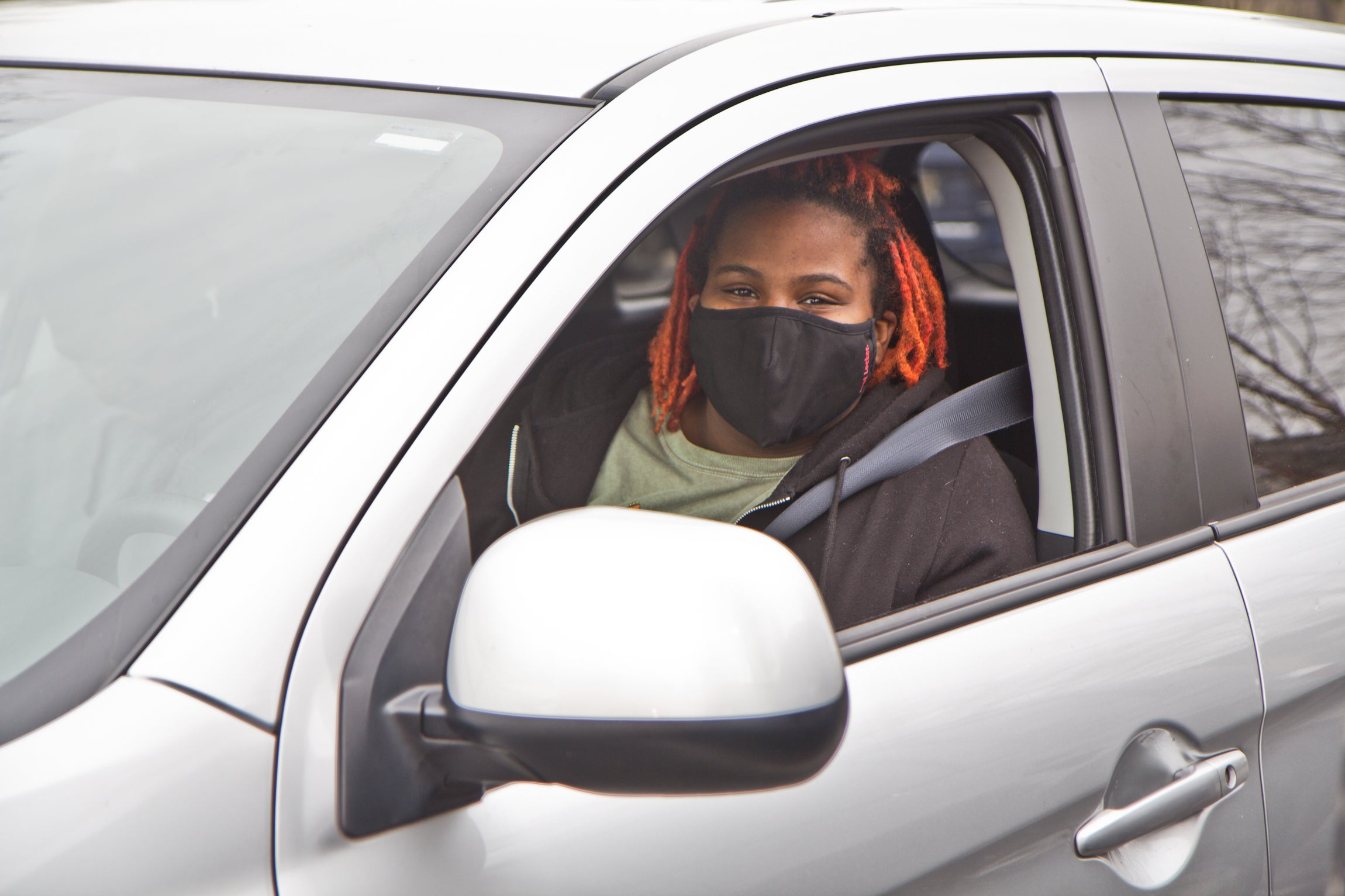
None of her classes are actually being held in person this semester, but she decided to move back into her dorm for better access to Wi-Fi and more areas to study, compared to her mom’s house in Upper Darby.
“For the most part, it’s more about space, because my mom also is working in the house and both of us trying to be on Zoom at the same time, and it’s like… ‘I can’t move. Like, I want to move’ because I have to be quiet and respectful in the house,” Asaka said.
She feels comfortable returning to Neumann’s campus with the testing protocols in place.
“I think I would just take my chances because, at the end of the day, I don’t really want to continue to live sheltered in the house when there’s a possibility for me to be safe.”
Lauren Regoli, a graduate nursing student at Neumann, helped administer the rapid tests. She’s seen the deadly impact of the pandemic up close working in the COVID unit at WellSpan York Hospital in York, Pa.
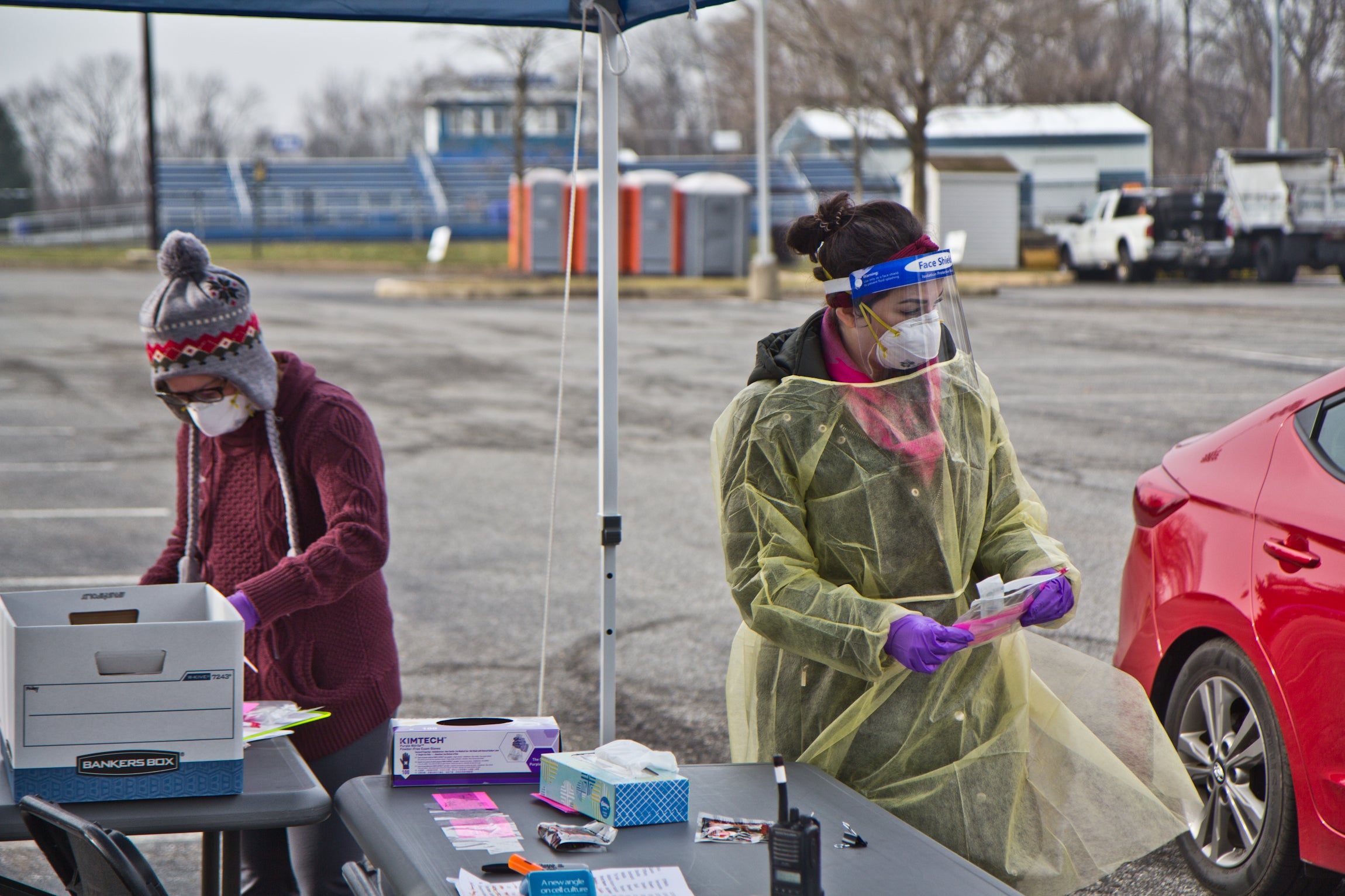
“I had to take some time off work just for my mental health,” she said. “It’s very hard to see — not just elderly people — but young people as well getting so sick and even dying from this virus,” Regoli said.
Exasperated, she counts it as one of the most emotionally trying times in her life.
Regoli, though, sees the value in having an on-campus student experience and was glad to be part of Neumann’s attempt to do so safely.
“Making sure to test all of the students is definitely the way to do it,” she said.
Responding to need, demand
Colleges in the Philadelphia area vary with their return to school plans: Some, like Community College of Philadelphia, West Chester University, and all Penn State campuses have started the semester completely remote. Others, like Temple, Penn, and Widener are going hybrid, and require negative tests for students to return to campus.
Neumann is hybrid too. This semester, it’ll test their on-campus students randomly after the first negative result.
Neumann President Chris Domes said 30 students tested positive for COVID in the fall, fewer than 10 of whom lived in the residence halls.
“Our campus is very safe. We have people wearing masks … Everyone walking to every single building has to do a health check. You answer a set of questions,” Domes said. “We were really able to mitigate the issues of spread on our campus and we had a very healthy semester.”
According to the Chester County Health Department, which also handles Delaware County, “most colleges/universities” in the area, including Neumann, did not consult the health department when reviewing whether they should return to classes or remain virtual.
“As long as the institution is following the recommended guidance for school settings, and undertaking all the necessary mitigation measures for safety, then it is up to the administration to determine the process for returning to some level of in-person teaching,” a spokesperson for the county wrote.
The question of when to return in-person classes has been starkly different in higher-education compared to K-12, as colleges and universities are grappling with difficult budgets, in part, because of declines in room and board revenue.
Colleges also said they are reacting to demand from students who want something that resembles a normal college experience.
At Neumann, Domes said in-person learning is “important” to the student body, and is “a part of who we are as an institution and our value structure.”
Fear of further spread
Some health experts, though, aren’t convinced that a negative test is enough to make sure students are safe when they move back.
Dr. Krys Johnson, an epidemiology and biostatistics professor at Temple University, said students are still at a high risk of transmitting the coronavirus.
“They’re in a population that is most likely to have asymptomatic infections. So inviting a study buddy over or going and meeting up at the library can be just as risky as going to a party because you’re in close quarters for a long period of time.”
Rapid antigen tests typically have an 80% accuracy rate, which Johnson said makes the tests too unreliable to ensure student safety.
One of her biggest worries is that the new COVID-19 variant strain will spread through Pennsylvania college campuses in the region.
“With Philadelphia being a large metropolitan area, and us having a multitude of universities that house people from different states, it’s very likely we’re going to end up seeing the variance,” she said. “And makes it even more emergent that we in Philadelphia get the vaccine as soon as we can.”
She said the only safe way to make sure campuses are COVID-free is to vaccinate students. At the current rate, that group is unlikely to become eligible until after many colleges break for the summer.
Student Hannah Asaka believes the risk is worth it, and was relieved to get a negative test. She said graduating high school and starting college during COVID has been stressful.
“I think at first I was really bummed because my senior year was cut out. I turned 18 — so all my milestones I hit during the pandemic and I was very disappointed,” Asaka said.
But she keeps a positive attitude as she resumes her freshman year.
“I think it is what you make it, and I’m trying to make the best of it, and that’s why I’m here. You’ve got to make it something.”

Get daily updates from WHYY News!
WHYY is your source for fact-based, in-depth journalism and information. As a nonprofit organization, we rely on financial support from readers like you. Please give today.




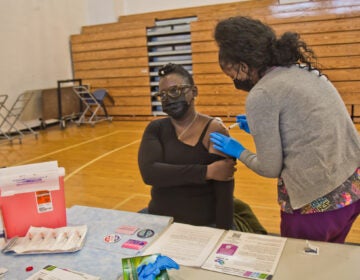
![CoronavirusPandemic_1024x512[1]](https://whyy.org/wp-content/uploads/2020/03/CoronavirusPandemic_1024x5121-300x150.jpg)

